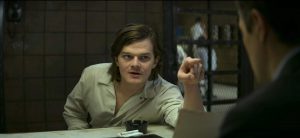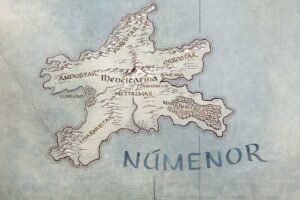Amazon Prime has officially announced the fifteen members of the main recurring cast for the first season of their The Lord Of The Rings, a massive fantasy series that will dive deep into the uncharted expanses of time and space between J.R.R. Tolkien’s epic creation-narrative The Silmarillion, and the events of his most well-known work, The Lord Of The Rings. In this mostly unknown and unexplored region of the Tolkien legendarium, there are three-thousand years of stories, subplots and character arcs that can absolutely be stitched together into the five-season series that Amazon is hoping to create: and now they have a cast to help them with that daunting task.
A cast that, for the time being, is just that: a bunch of names and random headshots that really doesn’t give us any clear picture of what’s going on in Middle-earth at this point in the fantasy world’s history – are most of these characters original, devised by the Amazon Prime writer’s room? Or are they Tolkien characters, and we just don’t know it yet? Who is playing who?
That’s why I’m here: to make extremely random and imaginative conjectures based on a handful of vague hints, and, hopefully, get something right. I’m likely wrong about most or all of these predictions and theories, so take everything I say with a grain of salt.
That being said, let’s start out with Robert Aramayo, first on the cast-list and the man presumed to be the series’ central protagonist. Aramayo’s real character name is unknown, but it is known that he replaced fellow Brit Will Poulter, who was supposed to play “Beldor”. While no character with that name exists in Tolkien’s canon, Poulter’s striking resemblance to Hugo Weaving – who portrayed Elrond Half-Elven in The Lord Of The Rings trilogy – led many to believe that Poulter was playing a younger version of Weaving’s character, and that “Beldor” was merely a code-name. Aramayo doesn’t bear the same resemblance to Weaving, but he’s not entirely dissimilar, either. If Poulter was playing Elrond, then it seems certain that Aramayo is, as well.
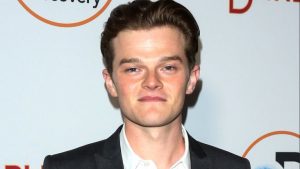
There’s another (small) bit of evidence that points to Beldor being Elrond: in an unofficial character breakdown, a character named “Neldor” was mentioned as being very similar to Beldor. Frankly, Neldor makes the most sense as a code-name for Elrond, since it’s literally just the word Elrond with the letters scrambled, but I think Neldor is more likely to be Elrond’s canon twin brother, Elros – the first king of Númenor, and forefather of the Dúnedain. And who better to play Elros than the only other member of the cast (so far) who looks anything like Robert Aramayo: Welsh actor Owain Arthur? Arthur has similar facial features to Aramayo, but is also noticeably older, meaning he could convincingly portray the Half-Elf’s mortal brother, who chose to live and die as a human.
We don’t know who’s playing Elrond, but it looks like Welsh actress Morfydd Clark is almost certainly playing a younger version of the Elven heroine Galadriel, as was reported some time ago. Clark could easily pass as Cate Blanchett’s twin, and has an ethereal aura that would befit a character of Galadriel’s nobility and majesty.
Similarly, it seems definite that Australian actress Markella Kavenagh is playing the character of “Tyra”, an elf or non-human character with an optimistic, naive worldview and an eager curiosity. This has been reported since she was cast several months ago, and it hasn’t changed once. Kavenagh is playing Tyra: of that I’m certain. I’m not yet certain whether Tyra is a code-name, but I do think she’s an original character – my theory is that she’s a rustic Silvan elf, and I will not be swayed in that opinion until proven wrong. A lot of people want to believe she’s actually Celebrían, the future wife of Elrond and mother of Arwen Evenstar, but those people are wrong. Sorry.
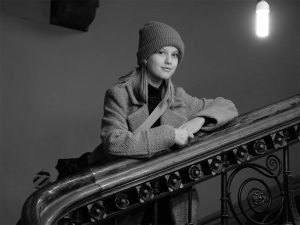
If I had to guess who is playing Celebrían, it would be Ema Horvath, a young Slovak-American actress who was cast a while ago: she doesn’t look like the type of actress who could play “warm and maternal…Eira” or “self-sufficient single mother…Kari”, so I have to assume she’s playing another character, whom we haven’t seen yet in either character breakdowns or leaked audition tapes. Celebrían is as good a choice as any. though another possibility is Tar-Ancalimë, the first ruling Queen of Númenor.
But let’s get back to that self-sufficient single mother for a moment, because I think Iranian-British actress Nazanin Boniadi is the perfect fit for the role of Kari, whose audition tapes revealed a conflicted character struggling with a dangerous secret that could turn her people against her. Either that or she’s Erendis, a proud, fiercely determined Númenórean noblewoman who has a prominent role in Middle-earth history, and was the subject of one of Tolkien’s most emotional, intimate dramas. Boniadi would kill it in either role. I’ve also seen suggestions that she could be a gender-bent Celebrimbor, and I would love that too.
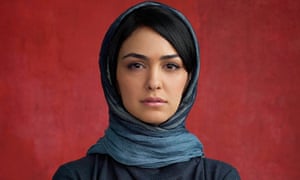
The series needs a villain, and I think both Daniel Weyman and Joseph Mawle make strong cases for why they should play Sauron, better known in this age of Middle-earth as Annatar, the giver of gifts and deceiver of men. Both men have strong, harsh features and a gaunt, almost sinuous look – personally, I’d take Mawle as Sauron and Weyman as his right-hand man, the Witch-King of Angmar, but maybe that’s just me. Sauron is an important role, and has to be cast right: in fact, since the character is a notorious shape-shifter, I wouldn’t mind seeing a number of different actors (or actresses) take on the role over the duration of the series, just to keep us constantly on our toes about who to trust. That way, the heavy burden wouldn’t just be on one actor’s shoulders, but would be passed around from episode to episode, allowing for the demigod villain to have a certain incorporeal feeling.
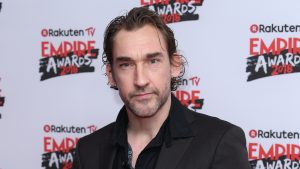
The character of “Hamson” is as good as Sauron is evil – described in breakdowns and audition tapes as a kind, loving farmer trying to preserve his fading health long enough to see his family through the winter, I imagine Hamson to be a rugged, rustic middle-aged man: basically, actor Dylan Smith. Otherwise, I could see Smith taking on the role of Loda, “an earthy man” whose daughter is training to be an apprentice in her village community.
Which brings us to Megan Richards, who I think fits the role of Loda’s daughter perfectly. This character doesn’t yet have a name, but had an important role in Loda’s audition tape, which saw the father and daughter duo conversing about a stowaway living in their house. With her charming, expressive features, Richards would be a sturdy emotional core for the series: a simple character wound up in a number of extraordinary circumstances. Alternatively, she could be playing one of Tyra’s sisters.
Next up, we have the youngest member of the cast, Australian child actor Tyroe Muhafidin. This boy has elf-ears, no questions asked: his ears are about as pointed as a human being’s can be, and I think it would be a waste to cast him as a human child, or anyone other than an elf. But are there any elf-children running around in the Second Age of Middle-earth? There are a couple: in one version of Galadriel’s backstory, she was the mother of a son named Amroth, who went on to become a noble elf-lord and the subject of a tragic love-song. Or, with a little timeline-altering, Muhafidin could be playing one of Elrond’s twin sons, Elladan or Elrohir. Those are the only elf-children I can think of off the top of my head, but there are very few kids in the Second Age – most likely, Muhafidin is playing a young version of a character who will become important as an adult in future seasons of the show.
Charlie Vickers is my pick for the character of “Cole”, who is described simply as a “charismatic” young fellow with a heavy burden and a melancholy attitude. Even after much brain-wracking, I can’t quite decide who this character might be in the Tolkien canon: perhaps the gloomy, pessimistic Celeborn? Imagining a “charismatic” Celeborn is somewhat difficult, so perhaps Vickers is playing a human – I keep coming back to Aldarion, the world-weary adventurer who set sail from Númenor to explore the edges of the world and found himself halfway across Middle-earth, leaving his family far behind him and largely abandoning the cares of his kingdom.
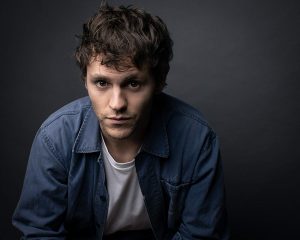
Aldarion’s closest friend among the Elves was the last king of the Noldor, the immortal Gil-galad. This is a role I wouldn’t mind seeing race-bent, especially because Puerto Rican actor Ismael Cruz Córdova seems like such a good choice: not only does he have a curiously timeless look, but his eyes are almost as striking as Elijah Wood’s – reminiscent of the pale starlight that the Elves adore so much. I could picture Córdova’s Gil-galad as a solemn, mature young leader and a keen judge of character.
Sophia Nomvete, an Iranian-African actress, is an exciting casting choice, and I want to see her in an exciting role: this could be as a queen reigning over lands in Middle-earth, or even as one of the two Blue Wizards who visited the far east and helped rally the fight against Sauron from behind his front-lines, causing irreparable damage to his war effort. The fates of these two wizards are a long-running subject of debate in the Tolkien fandom, and we’ve never seen them onscreen – the closest we got was a throwaway reference to them in The Hobbit: An Unexpected Journey.
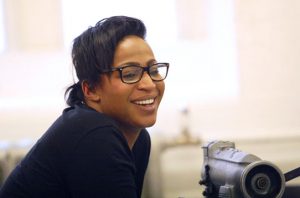
Finally, we have to figure out who Australian actor Tom Budge is playing: no easy task, considering that most images of him show the actor sporting a large, downright Gallic mustache. But once you look past the facial hair, I think it’s easy to envision Budge as an elf: perhaps even the foolhardy Celebrimbor, who will probably have a large role in the show as the creator and craftsman behind the forging of the Rings of Power. But Budge could also be playing a villain – in particular, I could see him as one of the nine mortal men ensnared by Sauron and transformed into the horrible Ringwraithes.
So all fifteen have been accounted for, and where does that leave us? Well, technically, nowhere, since these are all just guesses. I’ve tried my best to check off all the many characters listed in the unofficial breakdowns and audition tapes, but even so, a couple are still missing: who’s playing the maternal “Eira”, or irascible “Brac”? Which of these is the charismatic but cunning “Aric”, who made such an impression on us several months ago?
I leave you to come up with your own guesses, and tell me what you think of mine: share your thoughts, theories and opinions in the comments below!
